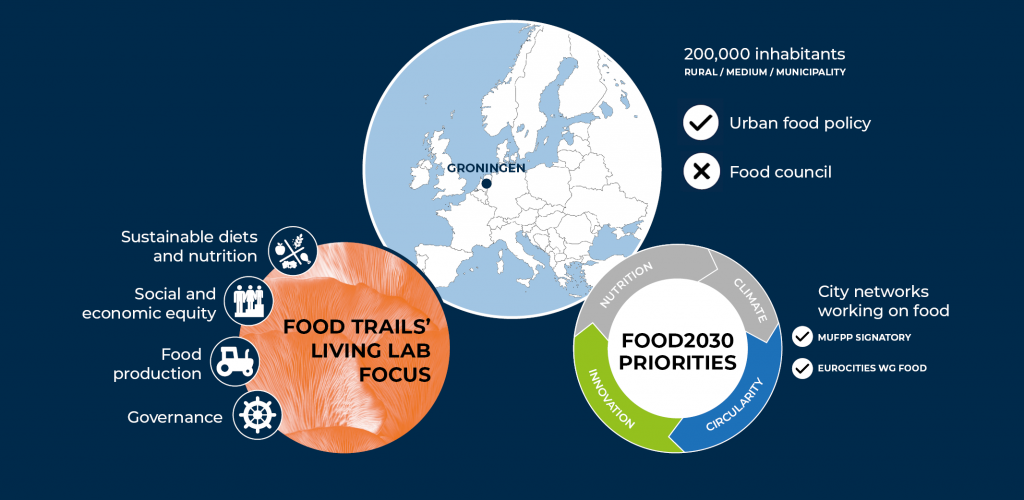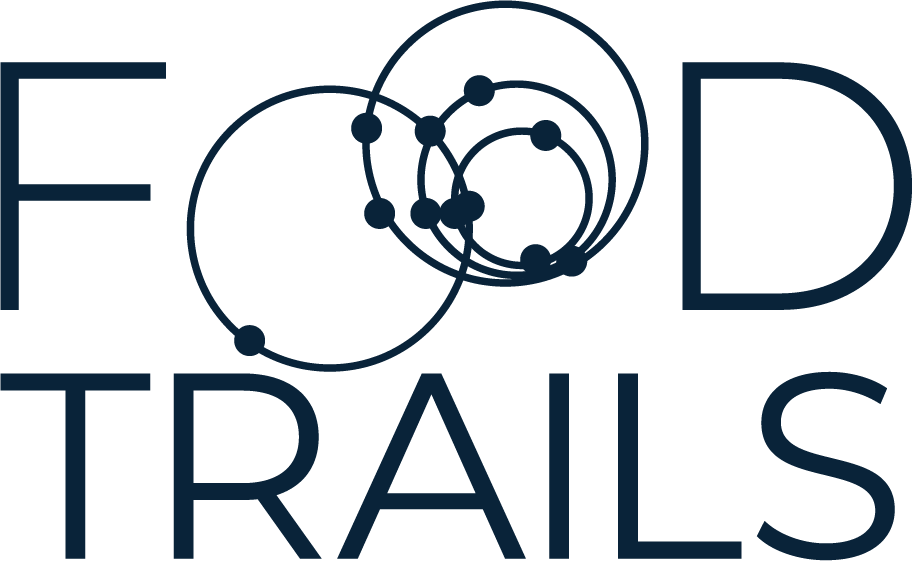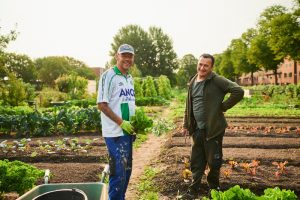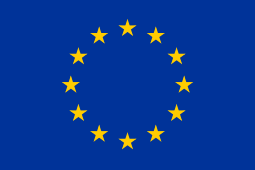
The old Hanseatic city of Groningen, counting over 200,000 inhabitants, is the largest city and the economic capital of the northern Netherlands. Groningen is at the core of the Functional Urban Area of 480,000 inhabitants is home to two universities and more than 60,000 students. With over half of the population under 35, the inhabitants are, on average, younger than anywhere in the country. This shows: Groningen is a young, vibrant and dynamic city with many cultural hotspots, top facilities and a bustling business community.
A high standard of quality of living is essential to Groningen.
In May 2022, the Municipality launched the ‘Durable Groningen’ website to map and collect all food-related initiatives in the city, structuring them around six main themes: housing, food, gardens and surroundings, waste and reuse, mobility and responsible business.
Groningen’s Food Trails pilot builds on the existing ecosystem of around 120 food initiatives to stimulate a healthier lifestyle and raise awareness on short supply chains. Health, sustainability and inclusion are key in the Groningen approach.
Groningen’s Food Agenda and Food Trails pilot aim to actively stimulate access to healthy and local food for everyone, with a strong focus on people living in poorer neighbourhoods. The city wants to include vulnerable groups further, develop new initiatives, and connect existing ones while developing shorter supply chains.
The Living Lab intends to connect and better align currently scattered and small-scale existing actions and policies and scale up these activities under two main initiatives:
– Toentje (‘little garden’), which includes a social restaurant and aims to produce fresh produce for the city’s food bank and make healthy food accessible to everyone;
– Tuin in de stad (‘garden in the city’), an urban garden which promotes community building around food production and motivates intercultural connections.
Read more here.


